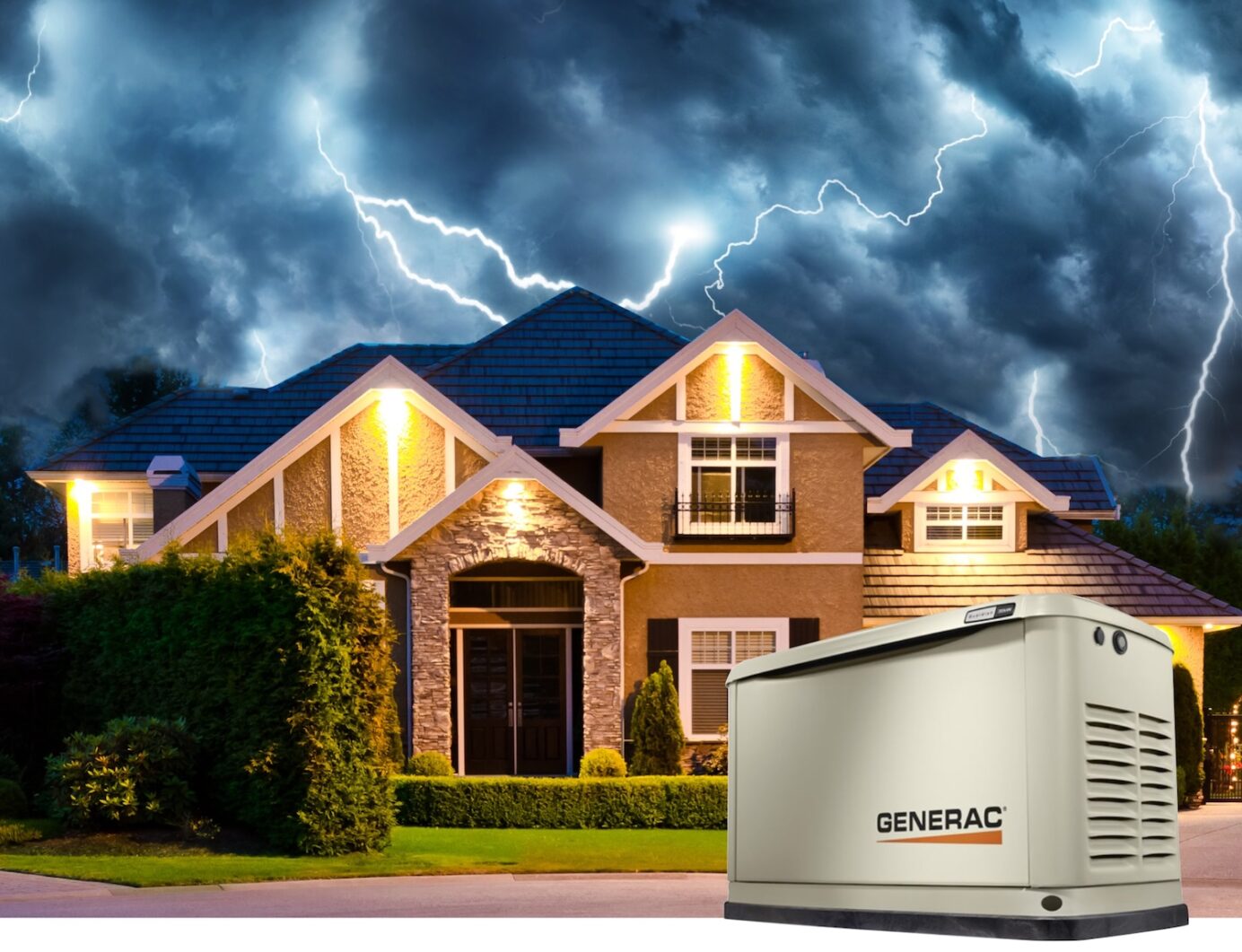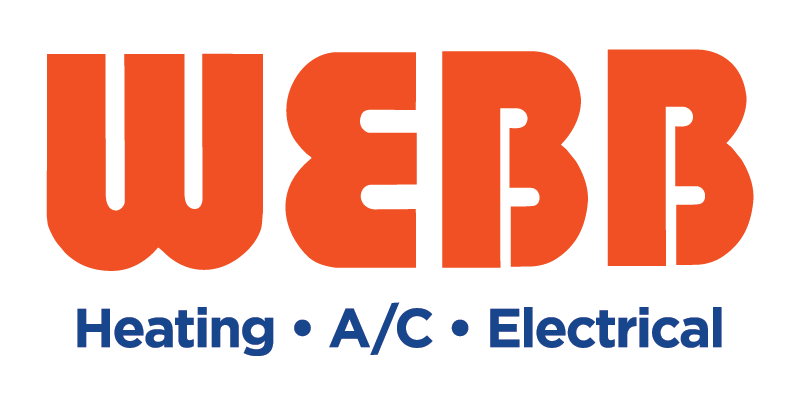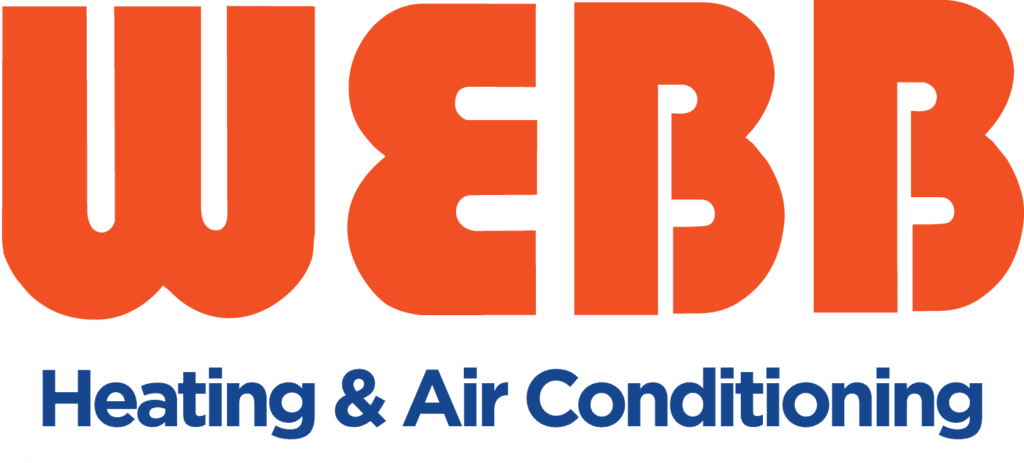How to Choose the Right Generator for Your Home

Your go-to source for home comfort.
Power outages can be both an inconvenience and a serious disruption, leaving you without the comfort of heating, cooling, or essential appliances. Whether the result of inclement weather, equipment failures, or an overloaded electrical grid, losing power is never something anyone wants to experience. That’s why it’s crucial to have a reliable backup power source that ensures your home stays operational.
However, choosing the right generator can be confusing with all the options available. With over 45 years of expertise in providing heating, cooling, and electrical solutions, Webb Heating, Air Conditioning & Electrical is here to help you navigate your options and select the best generator for your needs. Let’s explore how you can make the right choice and get the peace of mind you deserve, knowing that your home is in good hands.
Step 1: Identify Your Power Needs
Before choosing a generator, you must first assess your needs. Not all homes require the same level of backup power, so it’s important to determine what you need to keep running during a power outage. The right generator for you will depend on the size of your home and the systems you want to power.
Essential Power Needs Only
If you want to keep a few essential appliances running—such as your refrigerator, lights, and a few electronics—then a small generator may suffice. Portable generators are ideal for providing power to critical devices, making them a popular choice for homeowners who don’t want to overspend.
- Ideal for: Small homes, apartments, or people who only need the basics during an outage.
- Devices powered: Lights, refrigerator/freezer, medical devices, and a few electronics.
Whole-Home Backup
For homeowners who wish to maintain their normal lifestyle during an outage, a whole-house generator is necessary. These generators are capable of running your HVAC system, water heater, lighting, appliances, and even large electrical systems.
- Ideal for: Larger homes or anyone who wants to ensure uninterrupted power to all essential appliances, including HVAC systems.
- Devices powered: Heating and cooling systems, kitchen appliances, electronics, lights, water heaters, and more.
When you choose Webb Heating, Air Conditioning & Electrical, our knowledgeable technicians can help assess your home’s needs and recommend a generator size that’s just right. We’ll ensure that your generator delivers the right amount of power without unnecessary waste or costs.
Step 2: Choose the Right Fuel Type
Generators come in several fuel types, and the one you choose will depend on what’s available in your area, as well as your personal preferences. Each fuel type offers its own set of benefits.
Natural Gas Generators
Natural gas-powered generators are one of the most convenient and environmentally friendly options. If your home already has access to a natural gas line, this might be the best choice for you. Natural gas generators require minimal maintenance and are a reliable, long-term solution for home backup power.
- Ideal for: Homes with access to a natural gas line.
- Benefits: Continuous power supply, environmentally friendly, low maintenance.
Propane Generators
If natural gas isn’t available, propane generators are another excellent choice. These systems are portable and easy to store, making them ideal for homes with no natural gas access. Propane is also a cleaner fuel option compared to diesel.
- Ideal for: Homes without access to natural gas.
- Benefits: Efficient, environmentally friendly, easy to store, and good for moderate to large homes.
Diesel Generators
Diesel generators are commonly used for commercial applications, but they can also work for large homes or those with high energy demands. They’re typically more durable and powerful but may require more maintenance and fuel.
- Ideal for: Large homes or businesses with high energy consumption.
- Benefits: Powerful and durable, ideal for heavy-duty use.
At Webb Heating, Air Conditioning & Electrical, we guide you through the selection of fuel types, helping you choose the most cost-effective and efficient solution for your specific needs. We’re committed to providing reliable service with the best equipment for your home’s safety and comfort.
Step 3: Selecting the Right Size Generator
Choosing the right generator size is essential to ensuring that your generator can handle the load without being underpowered or overpowered. To calculate the appropriate size, you’ll need to consider the wattage of the items you want to power during an outage.
Small Generators (5,000–7,500 watts)
These generators are perfect for keeping essential appliances running, such as your refrigerator, a few lights, and possibly a space heater.
- Ideal for: Homes or apartments that only need to power a few basic devices.
Medium-Sized Generators (8,000–12,000 watts)
If you want to power multiple appliances, including lights, HVAC systems, and more, a medium-sized generator might be best. It’s a popular choice for most homeowners who want to keep their home comfortable during an outage.
- Ideal for: Homes with multiple occupants or homeowners who want to maintain comfort during a power loss.
Whole-House Generators (12,000 watts or more)
These are the most powerful options, capable of powering an entire home and all major systems, including HVAC, lighting, and appliances. Whole-house generators provide maximum comfort and peace of mind, ensuring that your home is always fully operational, even in the event of a large-scale power outage.
- Ideal for: Large homes or homeowners who require full backup power.
At Webb Heating, Air Conditioning & Electrical, we offer honest, upfront pricing so you know exactly what to expect when it comes to generator size and installation. Our expert team helps you choose the right size to meet your needs while keeping your budget in mind.
Step 4: Professional Installation
Installing a generator involves more than just setting it up outside. It requires proper electrical connections, fuel lines (if necessary), and a detailed understanding of local codes. Professional installation ensures that your generator is set up safely, securely, and efficiently.
Why Choose a Professional Installer?
Installing a generator isn’t a DIY project. Incorrect installation can lead to electrical hazards or system failures. That’s why it’s crucial to trust Webb Heating, Air Conditioning & Electrical for your generator installation. Our skilled technicians provide thorough and efficient service, ensuring your generator is ready to go when you need it most.
Step 5: Ongoing Maintenance and Care
Maintaining your generator is key to ensuring that it works when you need it most. Routine maintenance includes oil changes, fuel checks, and overall system inspections. It’s essential to run your generator regularly to keep it in optimal condition.
At Webb Heating, Air Conditioning & Electrical, we provide comprehensive generator maintenance services to ensure your system runs efficiently and reliably year-round. Whether it’s routine maintenance or emergency service, we’re always ready to help.
Benefits of Owning a Generator
A generator offers more than just the convenience of power during outages. Here are some of the key benefits of investing in one:
- Peace of Mind: Always have a backup plan in place for power loss.
- Home Comfort: Maintain heating and cooling systems during extreme weather.
- Food and Safety: Keep food fresh and medical devices running, ensuring the health and safety of your family.
- Security: Continue running security systems to protect your home.
When you choose Webb Heating, Air Conditioning & Electrical, you’re choosing a customer-first approach with reliable service that prioritizes your needs.
Frequently Asked Questions
How much does a generator cost?
Generator costs can vary greatly depending on size, fuel type, and installation. A basic portable generator may cost between $500–$1,500, while whole-house generators can range from $4,000–$12,000 or more. Webb Heating, Air Conditioning & Electrical offers honest, upfront pricing, so you’ll know exactly what to expect.
What size generator do I need for my home?
To determine the correct size, consider what you want to power during an outage. A small generator may be sufficient for just essential devices, while larger systems are needed for whole-home backup. Webb Heating, Air Conditioning & Electrical can help you assess your needs and find the perfect fit.
How often should I maintain my generator?
It’s recommended to service your generator at least once a year, ideally before the start of peak storm season. Regular maintenance helps ensure that it works reliably when you need it most.
Do I need to refuel my generator?
Generators running on propane or diesel will require refueling periodically, while natural gas-powered generators can run continuously as long as the gas supply is available.
Ready to Choose the Right Generator?
When it comes to keeping your home powered, Webb Heating, Air Conditioning & Electrical has the experience and expertise to guide you through the entire process, from choosing the right generator to installation and maintenance. We’re committed to delivering exceptional service that ensures your home’s comfort and safety.
Call Webb Heating, Air Conditioning & Electrical today for a free estimate and find the perfect generator solution for your home.

